In Jackson, almost 29% of the population lives in poverty. Unfortunately, the city cares very little about the struggle of its residents. Despite the high poverty rate, the city threatened to cut water for 20,000 people who hadn’t paid their bills. The struggling residents hadn’t paid roughly $45 million worth of bills.

Because of the poor living conditions and treatment of citizens, many residents want to get out of Jackson. The city’s population has decreased by 5% since 2010.
Oakland, California
While the name “Oakland” suggests a quaint and peaceful city set among oak trees, this city is anything but. Located on the eastern section of the San Francisco Bay, Oakland has been steadily struggling with gang violence and substance trafficking. Since the 1980s, the city has seen a regular influx of substance trafficking, particularly of the harsher varieties.

To make matters worse, violence is becoming a burden the city cannot deal with. In 2021, the city reported its deadliest year since 2006. Last year, the city recorded 113 homicides – which was actually an improvement. Oakland is known for being a vibrant part of San Francisco. Yet, sadly, it has a high homicide rate. Its struggles with gang violence and substance trafficking make it one of the most miserable in the US.
Los Angeles, California
It is bad enough being one of the worst cities in the USA, but the City of Angels is apparently so bad, it is ranked one of the worst in the world. According to the opinions of many expats, LA may be the city of glitz and glamor and Hollywood, but it is also a city riddled with homelessness, overreliance on vehicles, and a lot of bad traffic, and the worst part is you pay an arm and a leg for rent and property taxes.
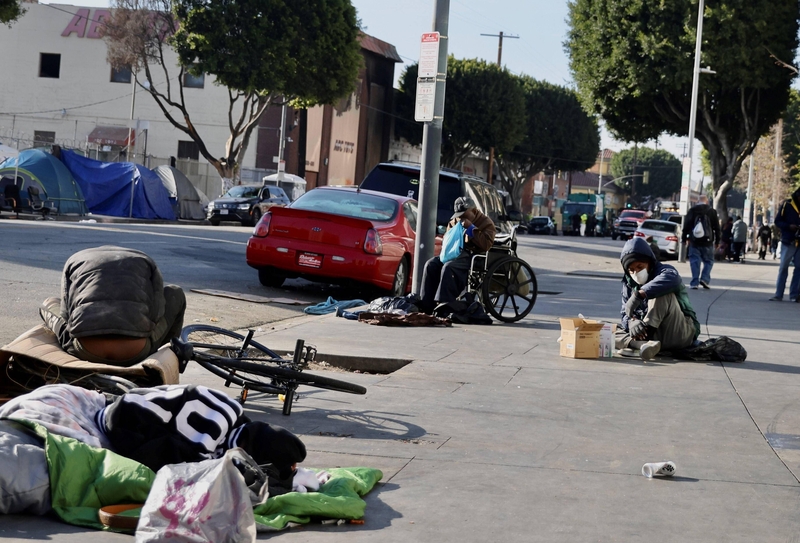
Recently, it has ranked third as one of the cities Americans are fleeing. There are still some positive comments people make about LA. Expats and residents love the generally warm climate throughout the year, but that doesn’t make the heavy commutes any more pleasant.
East St. Louis, Illinois
On the one side of the Mississippi River, there is St. Louis, Missouri. Straddling its eastern side, in the state of Illinois, there is East St. Louis. Either there must be something up with the river or with the name “St. Louis” because both of these cities just have plenty of bad vibes. In the 1970s, the city was first hit by a declining and fleeing middle class.

Basic civil amenities weren’t supported by dwindling taxes. Now, it has one of the highest homicide rates in the US. Much of the high crime rate can be attributed to gang violence and poverty levels. About 31% of the people live below the poverty line. And still, it gets worse. In the last decade, the population has decreased by 32%.
Mendota, California
Located in Fresno County and about a 40-minute drive from Fresno is the agricultural city, of Mendota. In many ways, Mendota struggles with similar problems such as economic decline to other cities like Fresno and Bakersfield in this county. If you are hoping to have a bright future, Mendota, California is not where it is at. According to a USA Today article published in 2019, only 1.8% of Mendota residents hold a Bachelor’s degree which is the lowest of any US city.

Furthermore, the median household income is $27,500 meaning that almost 50% of the population are living below the poverty line. It wouldn’t seem to get any more miserable than that, but Mendota also struggles with unemployment. Approximately, 15.4% of the population is unemployed.
Florida City, Florida
Recently, there has been a surge in the state of Florida. Warmer temperatures and not having to pay income tax are some of the main draws. That being said, not every city in Florida is worth moving to. One obvious contender is Florida City, which just happens to be the state’s namesake. And sharing the name of the state just tarnishes the whole state.

One of the main issues with Florida City is its high rate of violence. Not only does it have the highest rates of violence and property crime in the state, but also in the country. In 2017, the city reported rates of 2,276 violent crimes per 100,000 people. The rates of property crime were approximately 7,925 per 100,000 people.
Makaha, Hawaii
While the state of Hawaii elicits thoughts of warm weather, fun, and sun, a surfer’s paradise, we can definitely say that is not true of Makaha. Located on the western shore of Honolulu County and about a 44-minute drive from the Hawaii capital, it is just better just to forgo the drive and stay in Honolulu.

Makaha is not just one of the most miserable cities in the state but also in the country. Many of its issues are familiar struggles. Services cost a small fortune. Property is unaffordable. The cost of living is higher than the national average as the annual household income is $51,833. There is an issue with unemployment as about 9.7% of the population is unemployed. Currently, there are further issues with homelessness.
Highland Park, Michigan
Interestingly, this Michigan city was the site of Henry Ford’s first factory. However, it has been more than a century since the days of the industrialist and his model-T cars. Now, this once rural town does not have to contend with issues such as industrialization, but rapid economic decline, increasing levels of poverty, and crime.

Do not be fooled by its small population of roughly 8,904, there are plenty of bad eggs in Highland Park. In 2017, the city reported 1701 violent crimes per every 100,000 residents, making it one of the highest in the country. The poverty levels are also shocking. The average household earns $15,699 meaning it is more than $40,000 below the national average. Overall, those living in poverty total 49%.
Bessemer, Alabama
Plenty of cities making this list were once booming towns. Bessemer, Alabama is one such place. In fact, the city goes by the name “Marvel City”, but, truly, there is nothing to marvel at in this central Alabaman city. In the late 19th century, the city was founded by the coal tycoon, Henry F. DeBardeleben. Bessemer’s steel and coal industries rapidly increased.

However, those days are long gone. Now, the city is struggling under the weight of poverty and crime. Approximately 30% of the city’s population are living below poverty and it has some of the highest rates of crime in the state and country including violent and property crime. In Bessemer, you have a 1 in 30 chance of being a victim of a violent crime.
Bastrop, Louisiana
One of the major draws of Bastrop, Louisiana is that it has a Walmart. That is not saying much for this northern Louisiana city. With its small population of approximately 11,365 people, this population really has to pull up its socks. Interestingly, the city was founded after a Dutch embezzler made the city his getaway.

Perhaps, its history has been a bit too influential on its people. Bastrop has some of the highest crime rates, but what is really grim news is that about 43% of its residents are living below the poverty line. One of the main issues the city has been struggling with is the closure of International Paper. Thus, with a dwindling economy, and high rates of poverty and crime, Bastrop is quite a miserable city.
Anniston, Alabama
Being a small Southern town, you would be wrong to think that Anniston, Alabama is a peaceful place. It is not. Though there are only roughly 22,000 inhabitants, just under a third of them are living in poverty. As poverty and crime go hand in hand, it is unsurprising that the city is struggling with debilitating levels of crime.

The statistics indicate that there are 3,434 violent crimes for every 100,000 residents. Individuals living or visiting the city have a 1 in 31 chance of being a victim of a violent crime. Little wonder, its residents are getting out of there. With the increasing unemployment rate of about 10.9% and levels of crime, Anniston has suffered a 4.2 decline in population in the last few years.
Prichard, Alabama
What is going on in Alabama? The state seems to have plenty of bad eggs. And Prichard is just one. Located in Mobile County, Prichard does not have much going for it. One of the worst statistics to come out of the city is its decreasing rate of jobs. While the number of jobs available has increased by 6.1 nationwide, Prichard has a dwindling rate.

Unemployment has jumped to about 7%. To add to these woes are high levels of poverty and crime including violent and property crime. That is why Prichard has seen its only mini-exodus. Its population has decreased by 3.4% between 2018 and 2023. And it gets worse. The city also has the nerve to have a sales tax which is the highest in Alabama.
Bridgeton, New Jersey
It seems a bit tragic that New Jersey is also known as the Garden State. While it does bring to mind neat rows of suburban houses with trim gardens, it is also one of those states that just happen to have a lot of misery, meaning miserable cities. Bridgeton might have a bridge spanning the Cohansey River – from where unsurprisingly the city takes its name – and might have had the first zoo, but you will probably avoid going out of your way for the zoo.

Since the 1980s, its major industries in textiles and glass closed down causing job loss. The city’s unemployment rate is only 7% but it struggles with having the highest burglary rate in the state. And for the Garden State that is a massive problem.
Adelanto, California
If you translate the word “adelanto” it means “advancement” or “advance” in English. We’re not exactly sure what is meant to be advancing in this place, as it is clearly not the city of Adelanto. We know it is clearly not describing what is happening with the education in this city as not many of its residents are advancing theirs.

The city has about 5.2% of its population holding a bachelor’s degree. More than 30% of its residents are living in poverty so the city is not advancing the lives of its people. And the worst part is that residents spend an average of 41 minutes per day commuting. Did we also mention that the city is in a desert, the Mojave Desert? At least, the weather’s good.
Muskegon Heights, Michigan
An article published in 2022 explained that the Muskegon Heights residents are “fed up with these ‘raggedy streets’”. The article headline does not exactly paint a beautiful picture of this Michigan city, but then again, it is probably a fair point. Though the population numbers approximately 10,000, one part of the population is complaining about the “raggedy streets” and the other half is part of the problem. Just under 40% of the population lives in poverty.

The city reported that the average income per household is $25,411 a year meaning it is less than half of the national average. With poverty comes crime and Muskegon Heights is no exception. There are approximately 1,800 violent crimes and 6,000 property crimes for every 100,000 people.
Benton Harbor, Michigan
As romantic as the name sounds, Benton Harbor is not the crown jewel of Michigan. While the name brings to mind a calm town with a prosperous economy thanks to its harbor, Benton Harbor is anything but. Not only does it have one of the highest levels of crime in the state, but it has some of the highest levels in the country.
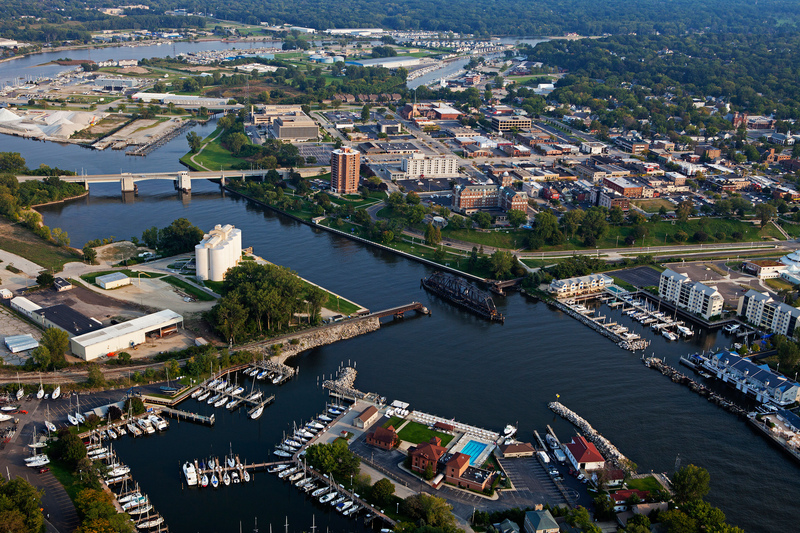
The annual report for 2017 stated that there were about 2,200 violent crimes for every 100,000 residents. That is more than five times the national average. Even though it has a small population of just under 10,000, about 48% of its residents are living below the poverty line. That is an astounding figure as almost half of its population lives in poverty.
Firebaugh, California
The Golden State might have numerous cities which are truly golden but Firebaugh is not one of those. Unsurprisingly, Fresno County is another city that is considered one of the most miserable. This city was founded along the San Joaquin River during the 19th-century Gold Rush. Yet, things have taken quite a downturn in the early 21st century. The most obvious issue in Firebaugh is the economic downturn.

The whole county seems to be struggling with poor economic growth. Three in ten of its residents are living in poverty which is certainly caused by its high unemployment rate which is 11%. While Firebaugh is miserable, its crime rates are actually relatively low as it seems to have the same rate of violent crime as the national average.
Ecorse, Michigan
Downriver from Detroit, Ecorse now composes the Detroit Metro area. The city was founded in the early 19th century. With its proximity to the Detroit and Ecorse Rivers as well as the establishment of a steel mill, it soon became a booming town. However, now the city has inherited many of the problems of its upriver city, Detroit. While it does not have the population size of Detroit, Ecorse’s population is struggling with poverty, crime, and boredom.

About 36.8% of its population lives in poverty. Violent crime statistics indicate that there are about 1,500 violent crimes for every 100,000 people making it high above the national average. While boredom may not be a real complaint, Ecorse residents struggle with it as there are limited entertainment options.
Robstown, Texas
You might just get “robbed” in Robstown, Texas. And no that is not why they gave this city its name. They were not trying to warn you about the high crime rate in Robstown. Nonetheless, you might still get robbed. In the early 20th century this city in Nueces County was founded by one Robert Driscoll. In 2017, the city was ranked the most dangerous city by the FBI. Statistics indicate that there are 894 violent crimes per every 100,000 people.
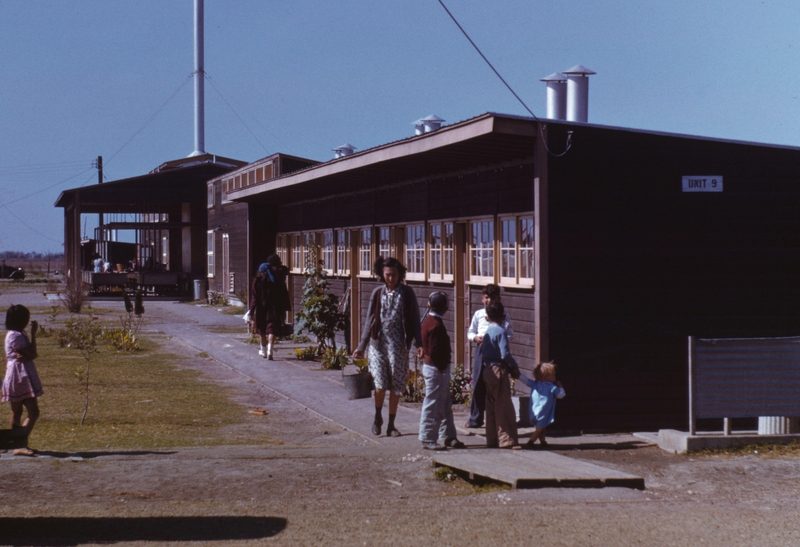
Another issue Robstown residents have to deal with is a declining population. And though its population is shrinking, it doesn’t mean there are more jobs to go around. In fact, there are fewer. Unemployment has risen to 8.1% which is above the national average of 4.1%.
Corcoran, California
There must be something that is not so golden about the Golden State. We can definitely point out one thing that is not golden about California. Yes, we are looking at you, Corcoran. Located in Kings County, the city of Corcoran is not for kings. The city doesn’t have much to offer a king. Though its crime rate is roughly the same as the national average, the city has seen an economic downturn and many of its residents are struggling financially.
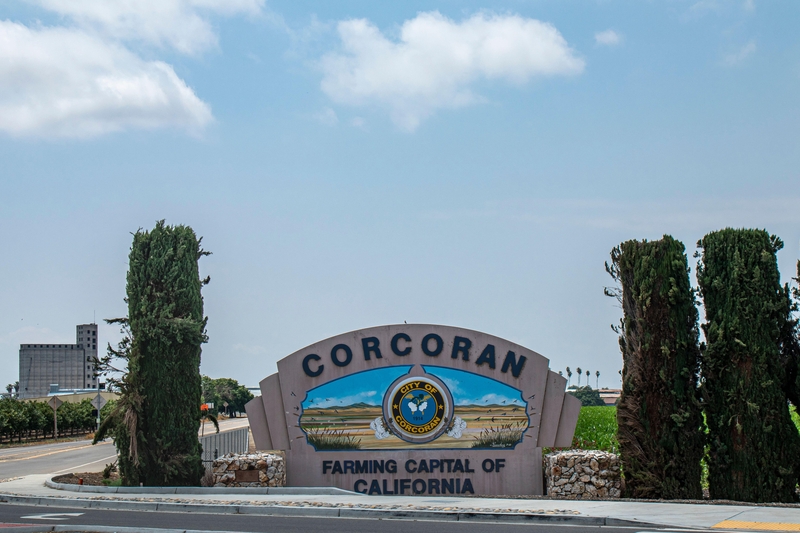
Currently, about 36.5% of Corcoran residents live in poverty. And money sees even less movement and less exchange as there are fewer and fewer entertainment options. In the last five years, the city has experienced more problems as it has had a decrease of 7.3% in its population.
Fairfield, Alabama
Do not be misled by its name which evokes images of rolling, beautiful fields. Fairfield does not live up to its name. Where the name came from is anyone’s guess, as the city was founded in the early 20th century and was originally called Corey after its US Steel industry. Those days are clearly over. In 2020, the city declared bankruptcy. No surer sign of a miserable city is when the city itself enters bankruptcy.

A year later, its county seat declared bankruptcy. Now, its population is struggling with high levels of crime and poverty. Approximately a quarter of the Fairfield population lives below the poverty line. With the slow economic increase and the unemployment rate being 7%, it looks like many will continue to suffer financial hardship.
Port Arthur, Texas
Port Arthur is suffering in large part due to the frequent natural disasters that plague the city. Since 2005, Port Arthur has suffered through three major hurricanes. The latest tragedy, Hurricane Harvey, hit in 2017 and caused $1.3 billion in damages.

Because of the dismal state of the town, people continue to move away. Now, town officials are nervous that their population will fall too low to receive federal grants, which will make Port Arthur’s position even worse.
St. Louis, Missouri
St. Louis severely struggles with crime, which has negatively impacted the city as a whole. In 2015, there was a 33% increase in murders, totaling 159 deaths. Because of the violence in the city, 5% of the population left between 2010 and 2018.
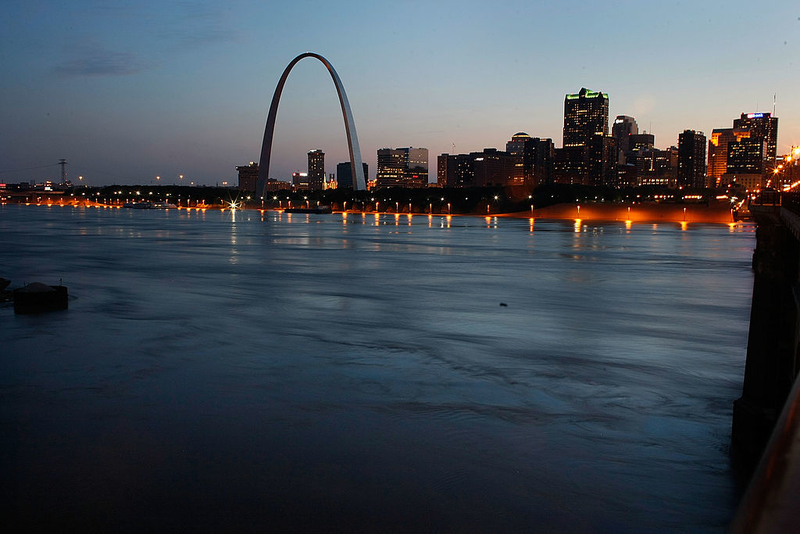
Right now, the city is primarily focused on fixing crime in St. Louis. If they can get gun violence under control, the city might have a chance to become a beautiful place to live.
Huntington, West Virginia
In the 1990s, Huntington was a coal town with a thriving economy. However, the city is a significant contributor to the country’s opioid crisis. In fact, it has been called the overdose capital of America.

In 2008, Huntington was called the most unhealthy city in America. It seems like people recognize Huntington isn’t a great place to live, as the city has lost 6% of its population since 2010.
North Miami, Florida
North Miami is another beach town, but it doesn’t feel the positive effects of being so close to the water. The city continually floods due to the high tides from the ocean.
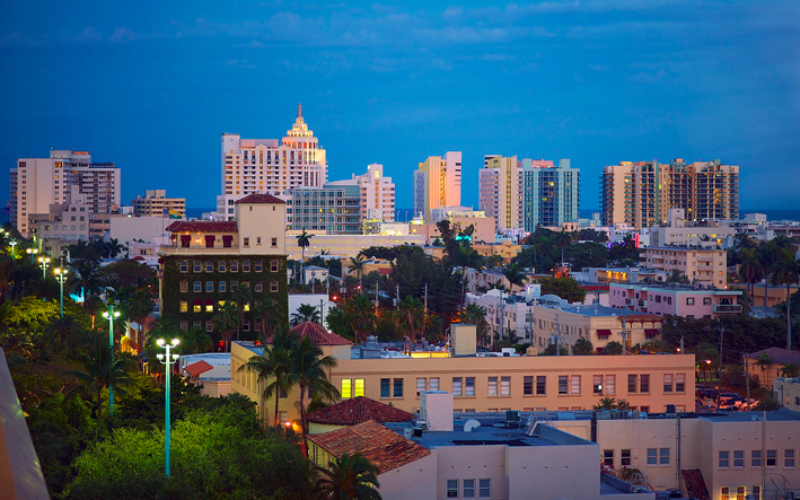
However, North Miami is facing an even bigger problem in the coming years. As sea levels rise, the city has predicted that the 2,780 septic tanks will stop working. That means human waste won’t be disposed of properly, allowing it to end up in places it shouldn’t be.
Paterson, New Jersey
Paterson is another city that is an innocent victim of natural disasters. When Hurricane Irene hit the town in 2011, the nearby Great Falls flooded the town. The falls were used to power nearby factories, but the flooded water interrupted both production and resident’s daily life.

After the flooding, people didn’t want to stick around to see what happened next in Paterson. After the flood, officials counted about 1,250 abandoned homes. The hurricane also affected the city’s income. Between 2009 and 2016, the tax revenue in Paterson fell by 38%.
Huntington Park, California
Huntington Park boasts a 97% Latino population, in large part because the town is another popular entry point for immigrants. The high number of illegal immigrants affects the town’s poverty rate and political engagement. Most residents can’t vote in the election due to their immigration status, so voter turnout is meager.
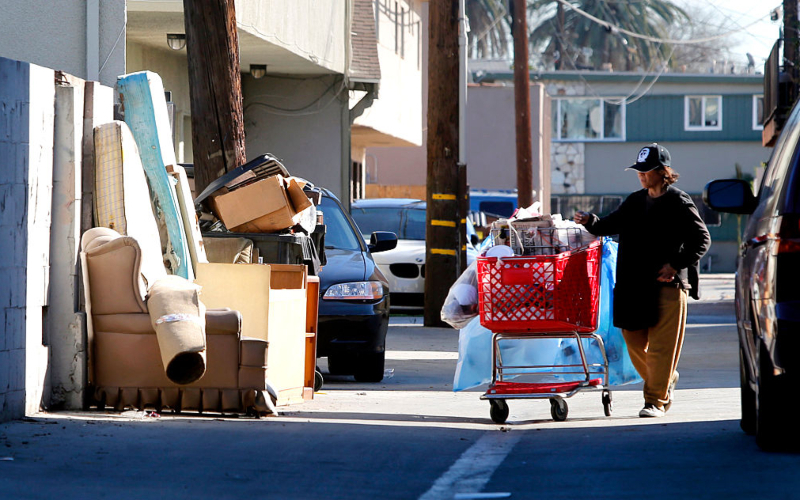
Besides, the high poverty rate makes it difficult to purchase or sell property in Huntington, which makes the entire city rather miserable.
New Brunswick, New Jersey
In New Brunswick, only 54% of the city’s 56,000 residents are employed. Although the town is small, 34% of the population also lives in poverty.
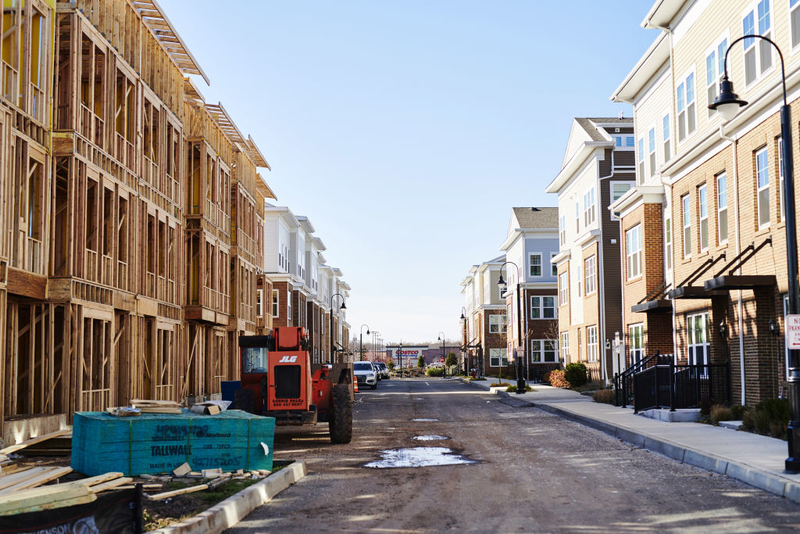
Beyond those dismal statistics, New Brunswick also struggles with crime. In 2017, reported assaults with guns rose by 64%. The violent nature of this town makes it a difficult place to live.
Flint, Michigan
It shouldn’t come as a surprise that Flint is on this list. After all, most people are aware of the Flint water crisis. Beyond the contaminated water, however, Flint also has a 41% poverty rate. It’s one of the poorest cities on this list.
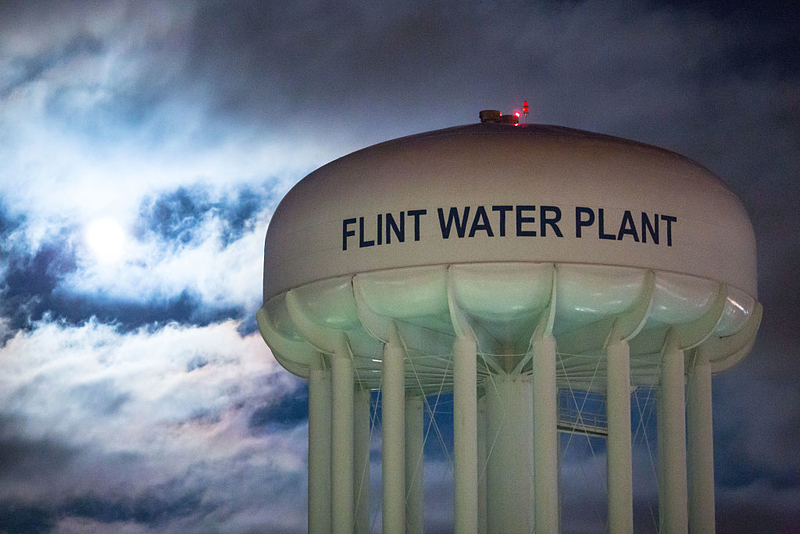
As if dirty water wasn’t bad enough, Flint also struggles with a severe opioid crisis, 20,000 abandoned buildings, and a high rate of violence. Suffice it to say that living in Flint is somewhat of a nightmare for many reasons.
Gary, Indiana
Gary, Indiana, is a town that’s falling apart. At one time, it was the murder and drug capital of the US. Unfortunately, the population has declined so drastically that there are hardly enough people to do anything terrible, much less anything good.

There are few jobs available in Gary and even fewer residents. There isn’t much to this town, which is why it’s just a miserable place to live.
Hialeah, Florida
Hialeah is considered one of the least diverse cities in the country. It’s comprised primarily of a Hispanic population, and the residents are struggling. Of 239,000 people living in Hialeah, 26% live in poverty, and 31% don’t have health insurance. This is probably because only 56% of the population is working.
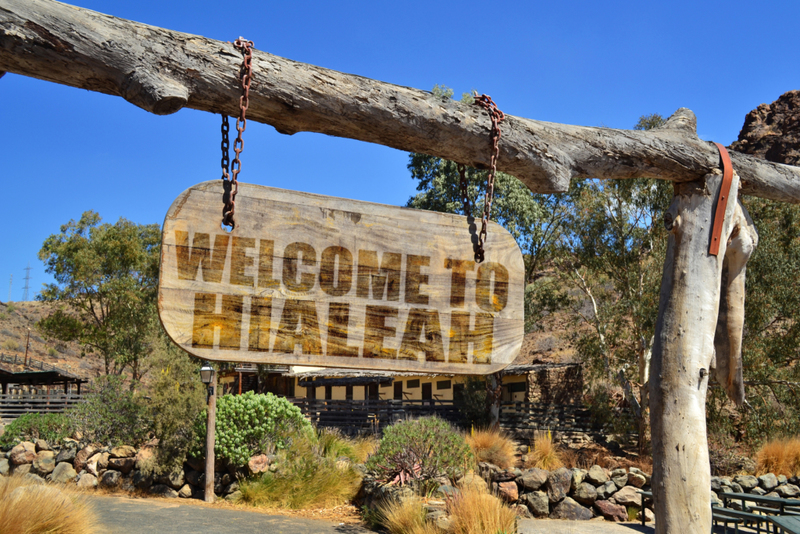
While the residents struggle, Hialeah is also considered one of the worst cities to live in if you have an active lifestyle. It’s hard to think about taking hikes or going on runs if you can barely put food on the table.
Memphis, Tennessee
There was a time when Memphis used to be one of the nicest cities in the country. Over the years, things took a turn for the worse and city-wide drug addiction took hold of the once beautiful southern city. With a current poverty rate of about 27 percent, things aren't looking too good.
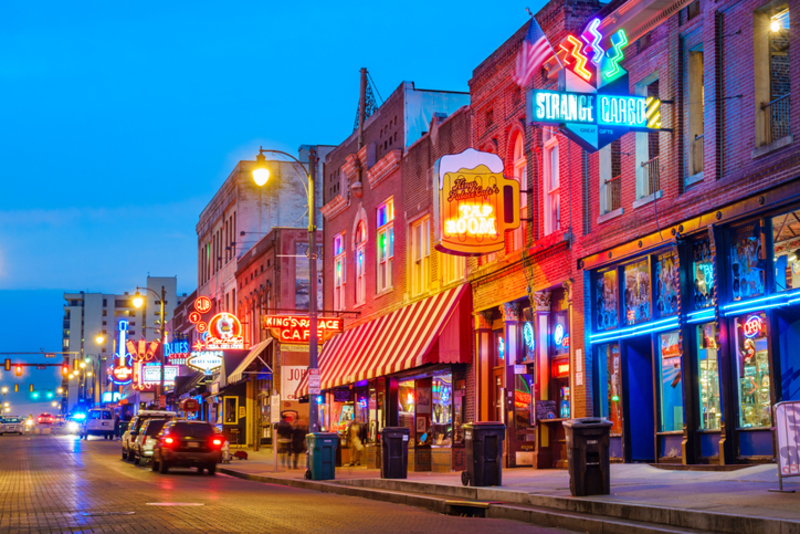
The soaring crime rate has also made general day-to-day life more stressful and impacted the general aesthetic. It still is the home of the blues.
Irving, Texas
Out of the entire 37,060 acres of land that make up the city land of Irving, Texas, only a measly 1,920 acres are parks. That is a depressing number. The city doesn't even have a single recreational center. This can make a city pretty grim.
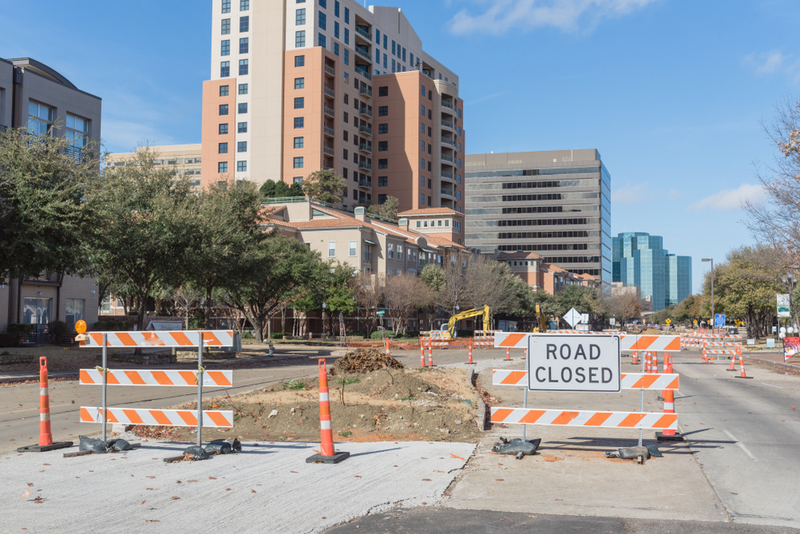
It sounds like this city is in desperate need of a Leslie Knope-type hero. Looking to shoot hoops? Move to another city.
Lansing, Michigan
What makes this city so miserable is the shocking crime rate. According to Business Insider, the city was rocked with 52 violent crimes per 10, 000 residents. It's also one of the few cities in which the crime rate is rising and not dropping, particularly in the last five years.
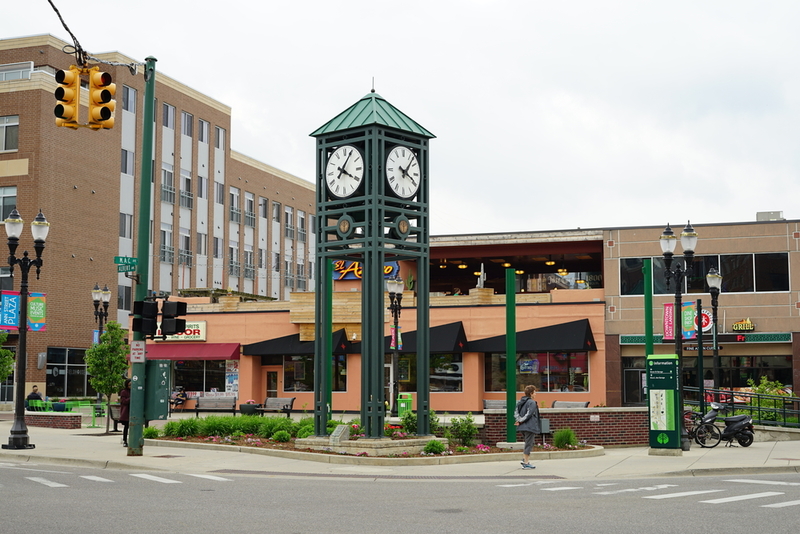
The poverty rate in 2017 was 29.5 percent and the unemployment rate hit about 6.3 percent. A big reason behind this depressing number is mental illness and domestic violence, according to Police Chief Mike Yankowski.
San Jose, California
With an overbearing amount of air pollution, San Jose's appeal is not very high and turns away a lot of people.
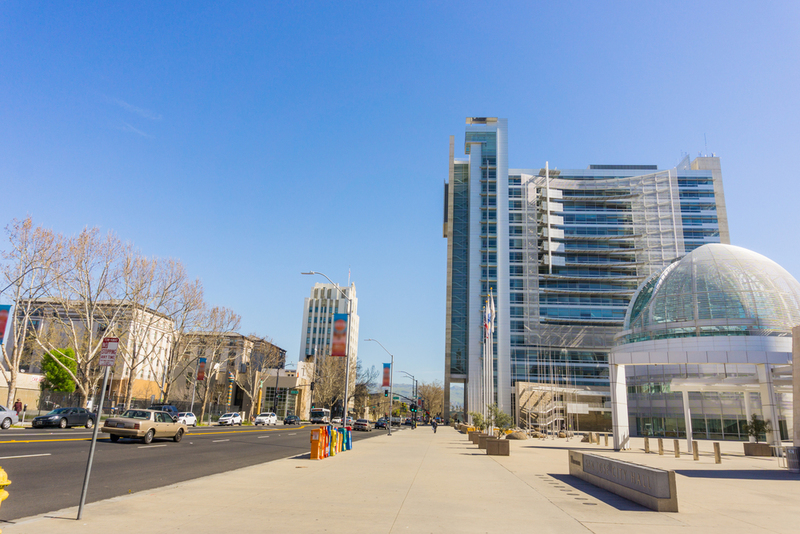
Living in a smoggy city can make a place pretty miserable. It is still a highly populated city responsible for innovation.
Stockton, California
Stockton did not completely recover from the nation's economic decline a few years ago. Add a rising crime rate to the mix, the city is becoming an increasingly difficult place to live in.

There is also a huge narcotic problem that is gripping the city, which is inevitable considering the unemployment rate. In 2012 the city claimed bankruptcy.
Reno, Nevada
Known as a mini Las Vegas, Reno has its charm. At least at some point. The city has been tanking in recent years, having suffered from many failed businesses. Filled with vandalized abandoned buildings, Reno is now in disarray.

The crime rate is rising like crazy and most of the city is poverty-stricken. It's definitely not the most desirable city these days.
Detroit, Michigan
Detroit has long been labeled as one of the ugliest cities in the United States. Businesses that once thrived are now neglected. Derelict buildings fill the city and crime rates are too high.

In 2017 the city’s unemployment reached a staggering rate of 9.3 percent rate, resulting in a poverty rate of 39 percent.
Pueblo, Colorado
Generally, when one thinks of Colorado, the Rocky Mountains and beautiful ski resorts come to mind. Not for Pueblo. For this tiny city, (the tiniest one on the list) things have not been easy. Regarding the violent crime rate, there have been 1, 052 violent incidents per 100,000 people.

That's pretty bad considering the population is about 100,000 people. It ranks number eight on the list of cities with the worst crime rate.
New Haven, Connecticut
New Haven might be home to Yale, but it doesn't make the city any better, unfortunately. The crime rate is high, especially when it comes to homicides, and while the immediate surroundings of the Ivy League institution are great, the rest of the city takes a dip.

This makes it a rather miserable city to live in. Unless you're living on campus.
Riverside, California
The quality of life in Riverside is not that great. This has a lot to do with the terrible air pollution and the accumulation of unsightly trash that fills certain areas. That can make for a miserable living experience.

Residents are not happy with their city, but sadly, not much action is being taken.
Milwaukee, Wisconsin
Another city filled with an industrial mess, Milwaukee is not pretty. Additionally, the crime rate is pretty high. While some areas remain safer than others, some more dangerous spots of the city are responsible for a crime rate of 1,597 per 100,000 people.

The city is not helped by a poverty rate of 28.4 percent and an unemployment rate of 4.6 percent. On the upside, the police force may be slowly beating crime.
Bridgeport, Connecticut
Bridgeport is not the most aesthetically pleasing city in the country. As a large target for crime, it's not the most desirable city to live in. In fact, many people are seeking to leave the city as fast as possible.

Hopefully, the city will be going through some changes in the near future but for now, it's one of the country's most miserable cities.
Baltimore, Maryland
Travel and Leisure once rated this Maryland city as the fourth ugliest city in the country. And they were referring to the people! That is pretty harsh but could be an explanation as to why this is one of the nation's most miserable cities.
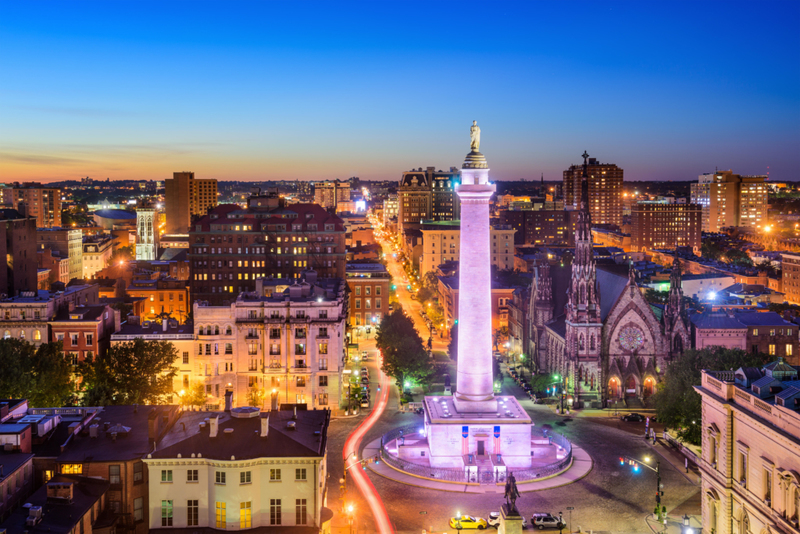
You know what they say, beauty is skin deep. Perhaps if residents of Baltimore felt better, then they would look better. Of course, a major reason behind this could be the awful crime rate which stands at 51 per 100,000.
Wichita, Kansas
As the largest city in the state of Kansas, Witchita is home to a lot of economic activity and is even known as being a major aeronautical hub. That said, the city's crime rates have shot up drastically in the last few years.

The city is to be a part of the U.S. Department of Justice National Safety Partnership, a national program that strives to push down crime. The three-year program gives training and technical assistance to the Wichita Police Department at no additional cost.
Fresno, California
It doesn’t seem as if any place in Cali could be less than gorgeous, but Fresno gets the prize for being the dirtiest city in the country. That’s pretty impressive when you consider just how many people and how many things are in the country that might seem dirtier.
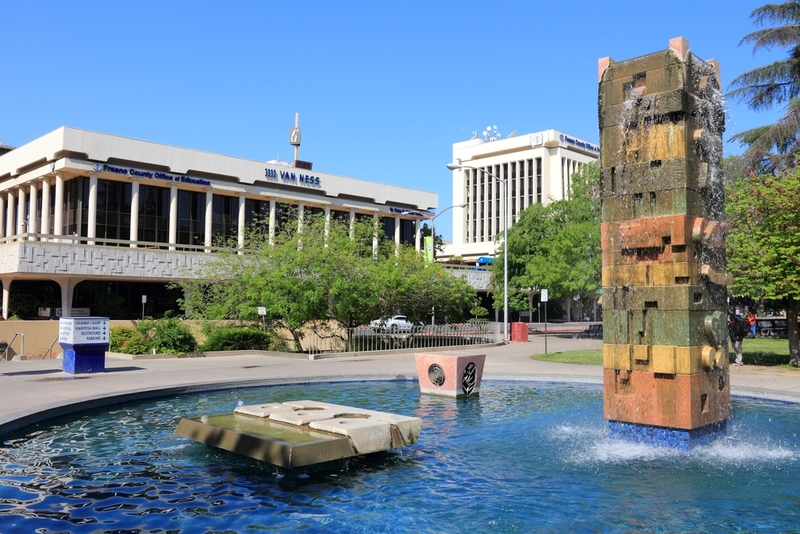
But the truth is that this city has nothing going for it in terms of air quality, and that’s why it wins the title of the dirtiest city around.
Bakersfield, California
Bakersfield is filled with power plants and pollution so it's not exactly a paradise to live in. Bakersfield residents have also voted their home as the city with the country's worst food.
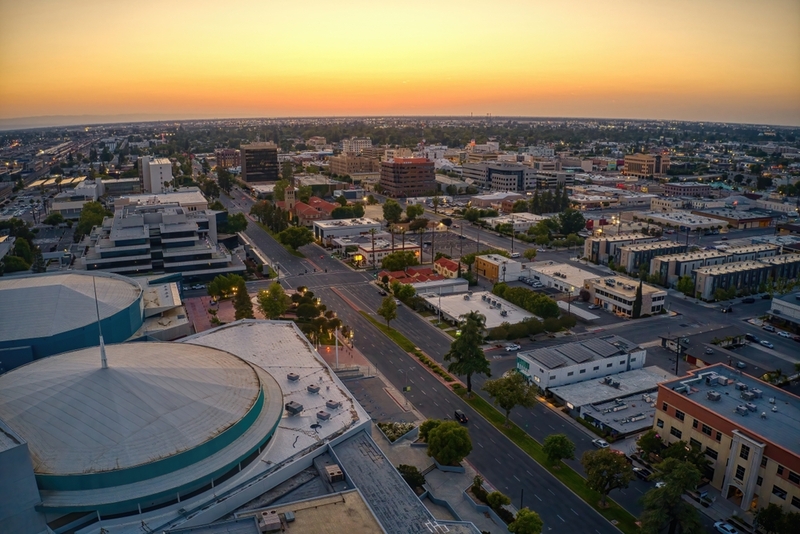
It seems that this city has been regressing for some time now.
Chattanooga, Tennessee
Nashville's lesser-known city, Chattanooga is another dangerous city in the famous state. The city lands number 23rd in the most dangerous cities in the country with 1,065 per 100,000 residents. A lot of the crime is due to terrible gang activity.
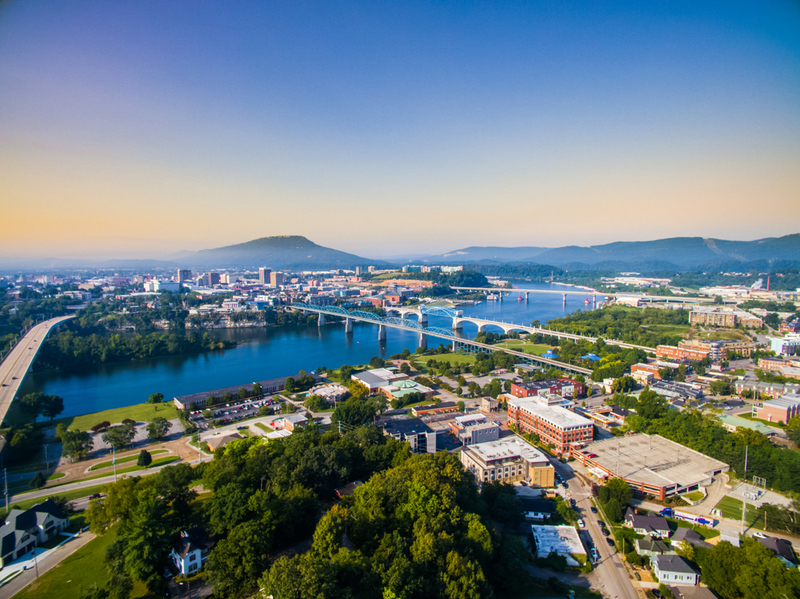
While gang violence has slightly declined, general violence in the city has risen.
Jacksonville, Florida
Jacksonville really suffers in its lack of parklike. An extremely low percentage of the city’s 869,421 inhabitants reside within a 10-minute walk from a park. Out of a total of 467,298 acres, only 64,603 acres are parks.

The city spends as little as $33 on parks.
Little Rock, Arkansas
Little Rock not only has the highest crime rate in the state but in the country too. According to Business Insider. Little Rock had 87.4 violent crimes per 10,000 last year.

The current poverty rate sits at 18.5 percent, while the employment rate is at 3.3 percent, according to USA Today.
Springfield, Missouri
Officially the first Springfield in America, this city is making history yet again, this time as one of the most dangerous cities in the nation. According to Business Insider (taken from 2017 FBI data), Springfield had 40.3 violent crimes per 10,000 residents.

Road Snacks listed it as the single most dangerous city in terms of property offenses with 8,853 per 100,000 people. The poverty rate stands at 25.9 percent and an unemployment rate of 3.2 percent.
Camilla, Georgia
With the unemployment rate over 20%, Camilla has climbed the ladder of bad success and is ranked first on the list of worst places to live in Georgia. The population in Camilla barely exceeds 5,000 people, and instead of turning into a small quiet semi-village, it has turned into a nightmare neighborhood.

The crime rate is ranked in 13th place and every year the population count decreases (we don't really blame them).
Emeryville, California
Emeryville is not really a miserable place, but it's more of a dangerous place — therefore, it's miserable. Only 12,000 people live there and they manage to make trouble as if it's a city of millions. There is a one (1) to 70 chance of being a victim of physical crime and a chance of one (1) in 6 of being hit by property crime.

So why do people live there? because they can't afford to go anywhere else. The poverty rate is the highest in California and the best business there is the store that sells security systems.
Freeport, Texas
The main reason people are not buying houses in Freeport, and causing negative migration, is because of the geographical location of this place. It sits right on the Gulf Coast, which literally invites storms during the hurricane season. This is something that will obviously remain the same, so this place is doomed for good.
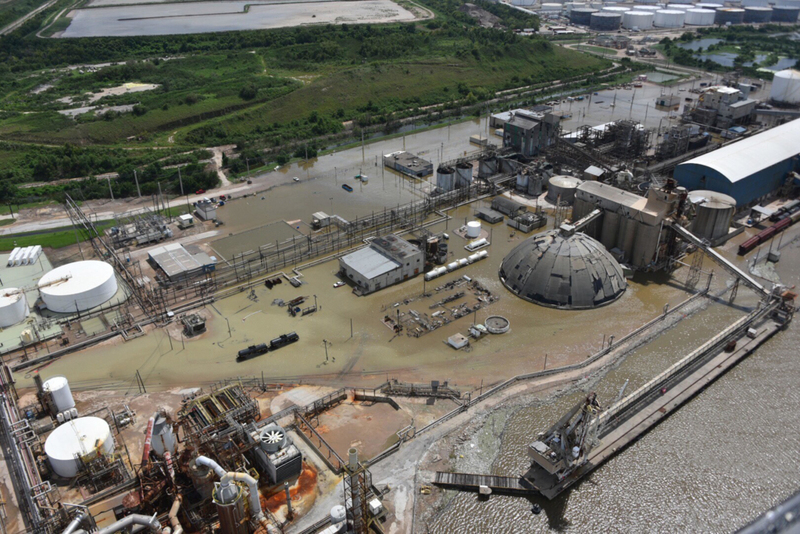
The percentage of children that continue their education in a college is under 30%, so if you're looking for a future for the next generation, Freeport is not the place for you.
Buena, New Jersey
The crime rate in Buena is over 305% lower than the nation's average, so why on earth is this place listed on our miserable list? Well, apparently, the good crime rate is the only thing good about it. The average income is one of the lowest, the unemployment rate is shooting over the roof. The people walking the streets of this place are not strolling or window shopping, they just have nothing better to do.

The value of the houses in Buena is so low, that there is no point in selling since no one is seeking to buy.
Fayetteville, Arkansas
The most popular crime category in Fayetteville, Arkansas, is not domestic or street crime, but property crime. Former president Bill Clinton lived near Fayetteville. However, things have changed since he moved to a slightly better location in Washington D.C.

According to Moneyinc, the property crime rate decreases the property value, which leads to poverty, unemployment, and a place on our list of miseries.
Grants Pass, Oregon
Grants Pass has a population of almost 40,000 people. It's located right on the banks of the Rogue River, making its location not really appealing. The floods of 2018 left people and homes wounded and escalated the city's bad reputation.
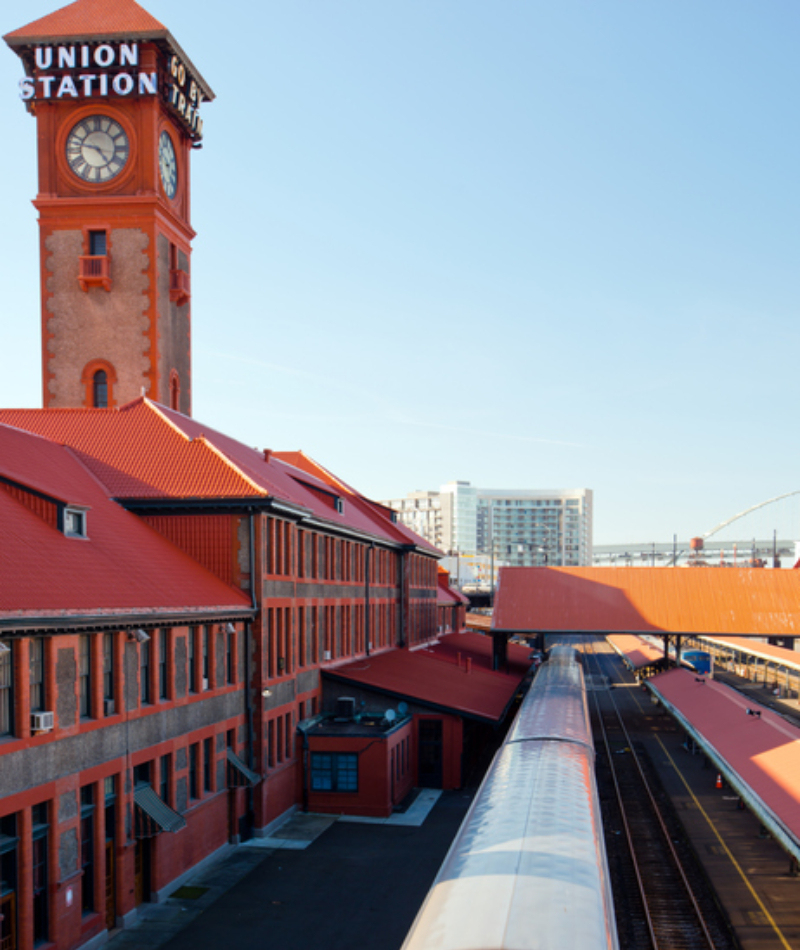
The opportunities and activities for young children are fewer at Grants Pass, so the residents have been losing property value over the years. Besides that, the schools are considered average and it has reasonable transportation systems.
Savannah, Tennessee
This place has one of the highest crime rates in the entire United States. Over 11% unemployment rate doesn't really flatter this place and a large portion of the residents live beneath the poverty line. What future do people have here?

So, we know how it works. Poverty leads to crime, crime leads to negative immigration, and negative immigration leads to a spot on this list.
Gautier, Mississippi
In Jackson County Mississippi, where over 20,000 people live, lies the town of Gautier. It has been on the list of the most dangerous places in Mississippi for several years now.

The place also lacks green lungs and outdoor spaces, which turns this place into one that holds a position on the list.
By the way, even if you Google this place, the images are a real turndown.
Roxboro, North Carolina
According to what we have read, this place is in serious trouble. A roaring 12% of the population is unemployed and the average income is far from what a family needs to make ends meet.
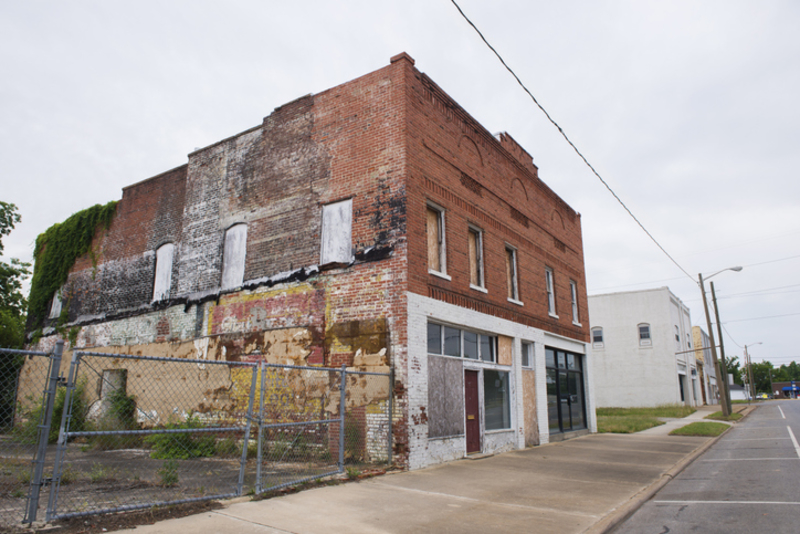
The geographic characteristics of this place provide a mild winter and stable spring and autumn. Besides a relatively hot summer, the place is calm — it's just the statistics that are making it miserable.
Texarkana, Arkansas
Let's start with some good things about this place (we've got so much bad publicity here we have to soften the mood a little). The commuting system is pretty good (in comparison to the rest of the country) and the employment issue is fairly stable, but the crime rate, oh lord the crime rate.

It's one of the highest in the state. The schools are middle-lower class and the overall opportunities for children are not that appealing. It doesn't take much to be placed on the miserable list after all.
Cleveland, Ohio
In 2010, Cleveland was dubbed the most miserable city in the U.S. by Forbes. More than ten years later, its reputation hasn’t changed at all. Commonly known as “the mistake by the lake” about its proximity to Lake Erie, Cleveland isn’t a place anyone wants to live.
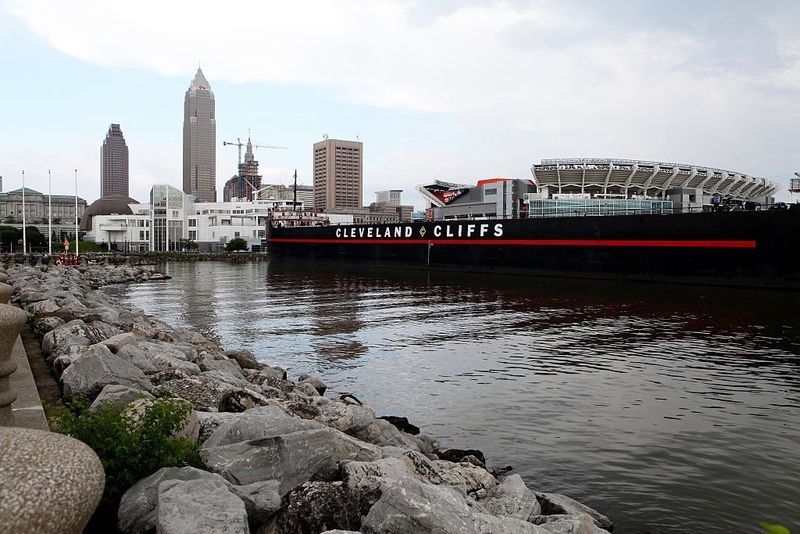
Data revealed that roughly 35% of Cleveland’s population lives in poverty, even though half of those people are employed. People simply don’t make enough to survive in this town, which explains why it’s such a miserable city. Consequently, violence rates are skyrocketing as people struggle to make ends meet and surplus for their families.
Compton, California
Compton is struggling with a special set of problems. About 40% of the population in this city is unemployed and lives off benefits. With such a high rate of people out of work, it shouldn’t come as a surprise that 23% of the population lives in poverty and struggles on a day-to-day basis.

Although some data surrounding Compton is still dismal, it has improved over the years. In 1991, the town has seen 87 murders, but that number, fortunately, dropped to just seven in 2014. Even though it’s still a dangerous place to live, the city is slowly improving with time.
Huntsville, Texas
Texas still supports the death penalty, and that decision has a profound impact on Huntsville. All executions in Texas are carried out at the Huntsville prison. On the positive side, the Department of Criminal Justice does provide around 7,000 jobs to the Huntsville area, making it the city’s largest employer. But let's put that aside: who wants to live in a place where so many people die under unnatural circumstances?

Unfortunately, with such a morbid reputation, not many companies want to move to Huntsville, so the unemployment rates in this city are sky-high. On top of that, 35% of the population lives in poverty.
Trenton, New Jersey
Trenton used to be the center of the industrial world; however, many things have changed in the past few years. The city that once thrived has since become somewhat of a wasteland. With the changing times, production in Trenton faced a massive decline, and instead of producing new things, it collected all the things other states doesn't want.

The shifting landscape greatly affected the city, and it’s now plagued with a high crime rate. Gang activity is an everyday occurrence in the area, as are issues with gun violence. Suffice it to say Trenton isn’t exactly a safe place to live.
Newark, New Jersey
You may have heard about Flint, Michigan, but you probably haven’t heard about Newark, New Jersey. Unfortunately, Newark is in a similar position. The city struggles with significant problems due to lead in their water, leading to many sick residents. It used to be one of New York's highlights, but not anymore.

In addition to the tainted water, Newark also suffers from violence and riots as a result of the extreme racial tension in the city. It has one of the highest levels of prejudice and narrow-minded people. On top of lead poisoning and hostility, 28% of the city’s 282,000 residents live below the poverty line.
Passaic, New Jersey
Sex education is incredibly important, and Passaic is proof. The city’s youth council claims that the sex education programs in schools across the city are incredibly inadequate. In fact, many schools provide no sex education at all. The lack of information creates severe problems with teenage pregnancy in Passaic, and teen pregnancy rates are escalating.

On top of that, roughly a third of the population lives in poverty, so having underage families does not help the city's situation one bit. With little hope for a bright future, illegal substances and violence have become prevalent problems in Passaic, so we can only hope for better days there.
Miami Gardens, Florida
When you hear Miami, you automatically think of the sun, sea, sand, tropical drinks, and party vibes. Miami Gardens, however, is a little different. The water in the city is supplied by a plant owned by the City of North Miami Beach, which pushes water prices in Miami Gardens through the roof. Subsequently, the entire cost of living in the city is sky-high.

The city also implemented a stop-and-frisk policy that led to about 57,000 people being frisked between 2008 and 2014. The system creates severe tension in the city, especially among residents who are the targets of stop and frisk.
Hammond, Indiana
Hammond is an industrial city, part of the Chicago metropolitan area. It was first populated back in the 19th century; today, it is considered the oldest city in northern Lake County, and in 2020, it was also declared the one with the largest population. Instead of a thriving economy, residents are plagued with water and air pollution.
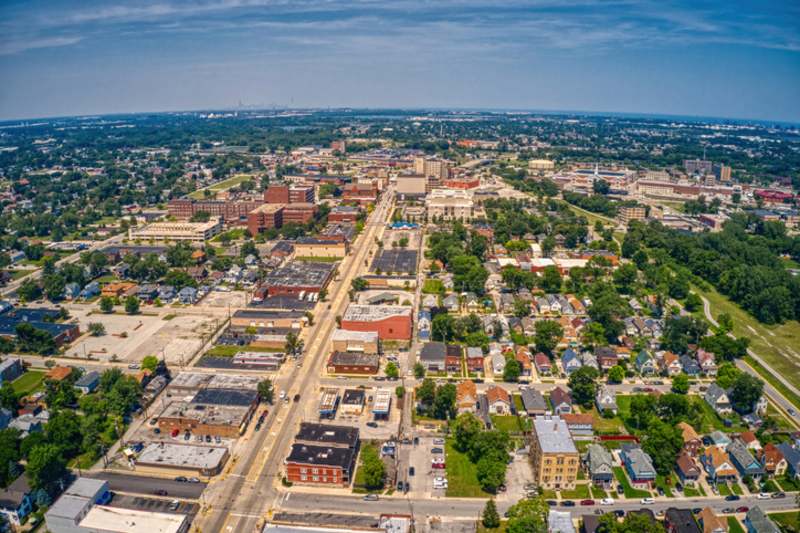
Like Newark and Flint, Hammond also struggles with lead contamination. Twenty-two percent of Hammond’s population lives in poverty, and the number of people living in the city declines continuously. Because of the population issues, the community has decreased by 6.2% since 2010.
Palmdale, California
It’s a bit of a gamble to buy a house in Palmdale. Since 19% of the population lives in poverty, Palmdale was once known as the foreclosure capital of California. It was the dream; it was the future; however, it has only been going downhill, and things are not looking as if they are going to change.
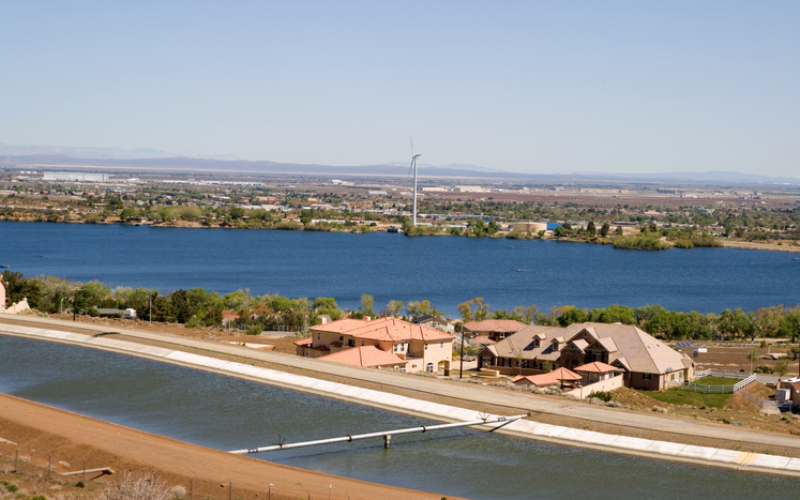
It’s hard to make house payments when you can barely afford food. Even if you do have a steady job, your life only improves minimally in Palmdale. The average commute time is 42 minutes, much higher than any other city on this list.
Harlingen, Texas
Through no fault of its own, the weather in Harlingen makes this city a difficult place to live. Harlingen is known to have very little rainfall and scorching temperatures for most of the year. Even summer lovers find this place impossible to cope with. Of the 65,000 residents in the city, only 56% have jobs. Thirty percent of the population lives in poverty.
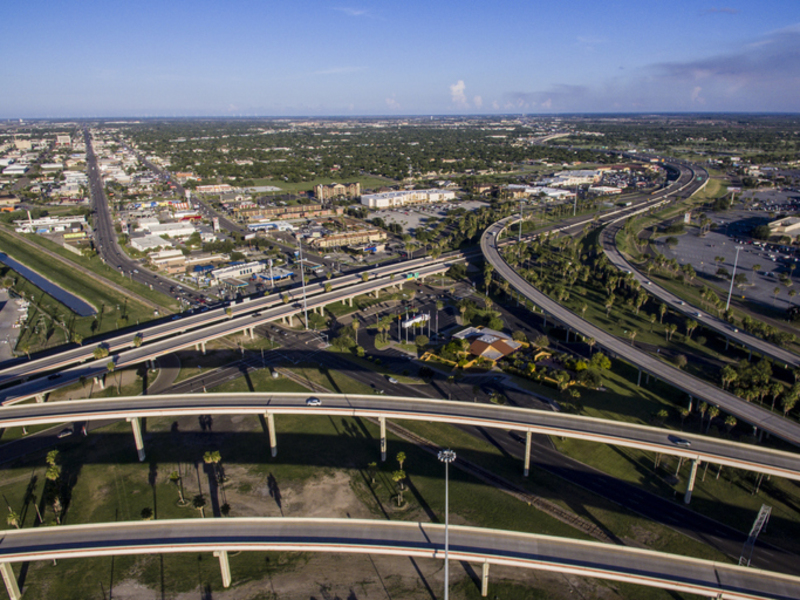
Harlingen was put in an even worse position in 2019 when 2,000 immigrants were released into the city. The new residents strained an already struggling population as Harlingen tried to pull together some help for the immigrants using its limited resources.
Plainfield, New Jersey
Plainfield is not a place that used to be pleasant and gradually went downhill. It has been diagnosed as a violent city for decades. In 1990, 719 violent crimes were reported in Plainfield. Over the years, crime has decreased slowly, but it hasn’t disappeared altogether. The violence in the city might be partially attributed to the dismal conditions of its residents.
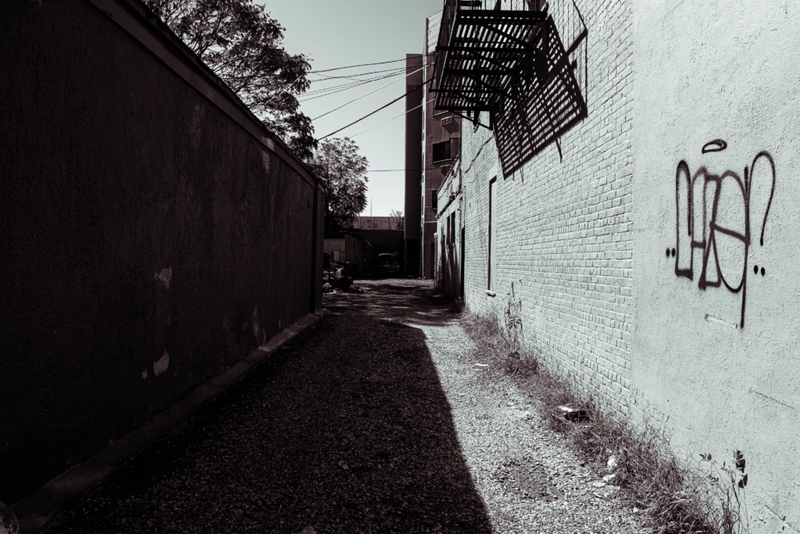
A fifth of the population lives in poverty, and many others try to survive without health insurance. Even if you do have a job, your average commute is roughly 31 minutes in Plainfield, making it difficult to find any enjoyment in your day.
Bell Gardens, California
When you say Bell Gardens, what is the first thing that comes to mind? It sounds like a paradise of a place; however, it is exactly the opposite. Bell Gardens does have a steady source of tax revenue. Unfortunately, it all comes from one source. In 2002, half the tax revenue of the entire city was attributed to one casino.
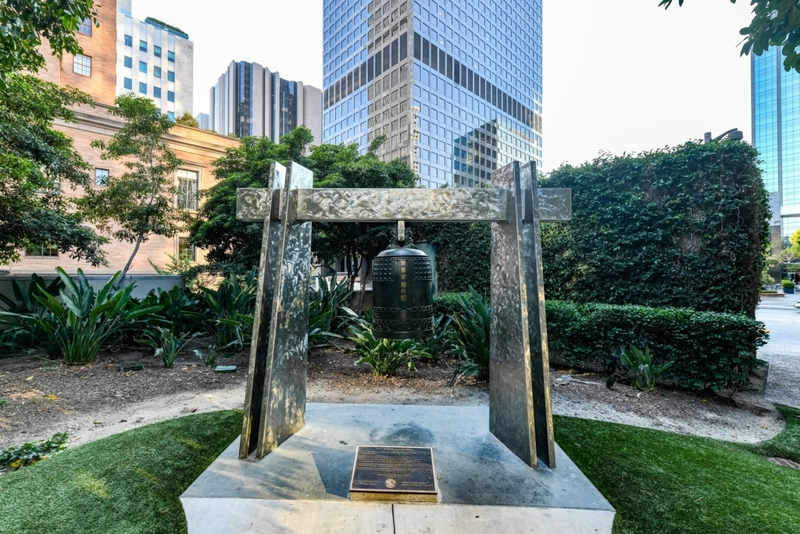
Since the city relies so heavily on one business, many services depend on how well the casino performs. Also, Bell Gardens struggles with overpopulation. There are too many people and not enough jobs, so 30% of the city’s population lives in poverty.
Warren, Ohio
Warren, Ohio, heavily relied on a GM plant in town to create jobs for local workers. When the plant closed, a large chunk of the population lost their jobs. The closure marked a severe downturn for the entire city. Across the entire country, Warren has the second-highest rate of people struggling to find food.

Because of the many problems plaguing the city, the population has dropped by 7.7% since 2010. In 2020, almost 40 thousand people were living in Warren, Ohio, with an unemployment rate of almost 5%. This means that more than 2,000 people do not work and struggle on a day-to-day basis.
Union City, New Jersey
Union City is only comprised of 1.28 square miles. In that tiny chunk of space, 68,500 residents try to make a living. It is one of the most densely populated cities in the entire country, and the citizens feel the effects. It is crowded and unpleasant and has been experiencing negative migration for years.

In Union City, the average commute time is 33 minutes. While some residents spend a large chunk of their days on the road, 23% of the population lives in poverty. Imagine trying to make a living in a city where you barely have room to breathe. It’s no wonder that Union City is so miserable.
El Monte, California
El Monte used to be a thriving city with many auto dealerships that boosted the economy. Unfortunately, relying on those auto dealerships for an income eventually backfired. When three of the largest dealerships were closed, the city never fully recovered. Today, El Monte still struggles with finances.

About 22% of the population lives in poverty, and the people who do work have an average commute time of about 30 minutes. The city played a significant part in the early Californian pioneer days; however, it never managed to stay with a good reputation and has been going downhill for years.
Albany, Georgia
Many places in Georgia have suffered the effects of natural disasters, but Albany is still struggling to recover. In recent years, the city suffered through both Hurricane Irma and a massively destructive tornado. As a city that relied on crops, the tremendous damage to farm goods made it difficult for Albany to recover.

About a third of Albany’s population lives in poverty. While its residents struggle to make ends meet, the city also has a massive issue with crime and violence. There have been many attempts to try and clean up the city; however, all former and current mayors have failed to do so.
Camden, New Jersey
About 37% of Camden residents are living below the poverty line. This is probably because the average household income in Camden is only $26,105. While that might sound like a lot, it’s the lowest average income of every city on this list. For comparison, the average family income in New York City is $113,315, which is almost five times higher than Camden's.

While residents can barely afford to survive, they also have to struggle with the high crime rate in Camden. Although crime is slowly improving, Camden is still considered one of the most dangerous cities in the entire country.
Pine Bluff, Arkansas
Much like Warren, Pine Bluff relied heavily on manufacturing jobs. Between 2016 and 2017, however, the city lost over 3,000 jobs, significantly affecting the workers living in Pine Bluff. While that was bad enough, the city experienced a flood when the Arkansas River overflowed in 2019.

It seems many citizens have decided that they’re done living in Pine Bluff. Since 2010, the population decreased by an incredible 14%, and it hasn't stopped. In the past ten years the number of people living in Pine Bluff, Arkansas, has decreased by almost 1% every single year. Saying that, the average income of the city has been escalating, so maybe there is a future for this city after all.
Mansfield, Ohio
Mansfield used to be considered quite a prosperous city. But when the GM factory closed its doors, the town took a turn for the worst. Without the ready availability of industrial jobs, many workers were left without an income or an opportunity to earn money. Once a person is unemployed, it is very difficult to climb back up onto the employment ladder, and this is exactly what is happening here.

After the factory shut down in 2010, crime in the city has been steadily on the rise. Since 2012, violent crimes in Mansfield increased by 37%, indicating a population who’s not happy about their situation.
Fort Pierce, Florida
Fort Pierce may be an ocean town, but it’s not the idyllic beach city of your dreams. The city has to replenish the sand on the beaches every few years due to constant erosion. Imported sand probably didn’t enter your mind in your daydreams about living on the beach.

Of the 46,000 residents in Fort Pierce, 36% live in poverty, struggling to make ends meet. While the economy in Fort Pierce was once centered on citrus farming, the industry slowly collapsed due to changes in trade deals. Without a primary source of income, the city has steadily declined year after year.
Montebello, California
There aren’t many upsides to living in Montebello, California. Fourteen percent of the population lives in poverty, while 19% don’t have any health insurance and rely on government benefits. If residents do have a job, they can expect an average commute of around 33 minutes.

Even if you do make a decent living in Montebello, the sky-high housing prices practically guarantee that you’ll never own a home. In 2019, a home-ownership counselor said the opportunities for first-time homebuyers in Montebello were nearly nonexistent. So, Montebello in California is not a place for young families; it is apparently not a place to retire, as it has nothing to offer.
Pasadena, Texas
Pasadena, California, is known for its wealthy communities, but Pasadena, Texas, is an entirely other story. Don't get confused by the two, as the differences between the two places are to the extreme. Pasadena is exceptionally divided. The southern part of the town consists of mostly white individuals, while the northern section is comprised of Latino residents who are in a lower level of life.

Despite the hostilities, Latinos kept moving into the city, drawn by its cheap housing and abundant jobs. By 2010, they made up more than 60 percent of the city's population, and it keeps growing and growing.
Shreveport, Louisiana
Shreveport, Louisiana, is the third most populated city in the state, following New Orleans and Baron Rouge. It has five universities and, for years, was considered to have great potential. It played a significant part in the Louisiana Oil industry; however, many things have changed here since the 1980s. Shreveport started its descent into a miserable city in 2015.

At that time, the Red River overflowed and flooded the town. Since then, Shreveport has never recovered. Between 2015 and 2016, the murder rate in Shreveport doubled. The city has also faced growing issues with more violent crime, transforming it into a rather dangerous place to live.
Hallandale, Florida
While Hallandale has the potential to be a beautiful beach town. It has captivating golden sands, and great accommodating hotels, and other states could only dream of having the weather it does. Saying that not all that glitters is gold. The shabby businesses and lack of opportunities make it quite a miserable city.

Hallandale has so many strip clubs that the locals often refer to it as Hound-ale Beach. Beyond those businesses, however, there aren’t many opportunities for the residents. About 20% of the population lives in poverty, and more than 29% don’t have any form of health insurance.
Youngstown, Ohio
At one time, Youngstown was one of the biggest steel producers in the United States. In fact, only two other cities produced more steel than Youngstown. In 1977, however, the industry took a hit, and the work began to see the end of the industrial era and opened its gates to welcome the technology days. The steel factory started downsizing, leading to massive job losses that greatly affected the prosperity of the city.

In 2017, Youngstown was just a ghost of its former glory. It was recorded as having the worst air pollution in Ohio, which was somewhat ironic when reflecting on the considerable decline in the city’s primary industry.
North Miami Beach, Florida
The problems in North Miami Beach largely stem from the city’s corrupt leadership. Two former mayors faced criminal charges for their spending decisions while in office. We know that corruption and dishonest people sitting on the throne of power can be found anywhere; however, when it comes to North Miami Beach, this was so significant it almost destroyed the city completely.

Considering the state of politics in the city, 20% of residents living in poverty and 32% of residents who don’t have healthcare isn’t exactly surprising. However, it does explain why the city is just an unpleasant place to live.
Reading, Pennsylvania
Reading in Pennsylvania was once known as the "Pretzel City," and even to this very day, the city has numerous pretzel bakeries scattered all over the city. It was massively impacted by the closure of numerous factories around the city. When these factories shut their doors, many of the residents of Reading lost their jobs. In 2011, Reading was declared the most miserable city in the country by The New York Times.

Today, 36% of Reading’s population lives in poverty. Roughly 44% of all households in the city are on food stamps. It’s hard to make a living when there aren’t many job options available, which is the unfortunate case in Reading.
Danville, Virginia
Like many cities that were influenced by the changes the world went through in the late 1980s, Danville is yet another town affected by the closure of local factories. This time, the tobacco and textile mills in Danville shut their doors, making it difficult for the once-wealthy residents to earn a living.

It seems people aren’t willing to stick around Danville as it continues to decline. In the past eight years, the city’s population has fallen by 5.5%. Although they’re trying to set up solar farms and open new businesses in the abandoned mills, it’s yet to be determined if Danville can make a comeback.
Hemet, California
In Hemet, 23% of the population lives in poverty. The crime rate has also increased dramatically since 2010. In 2016 alone, 170 robbers were reported, 623 cars were stolen, and 398 aggravated assaults took place. Those numbers represent the highest in the century for Hemet. You would have thought that for these reasons and others, people would have shown no interest in moving there; however, things are very much the opposite.
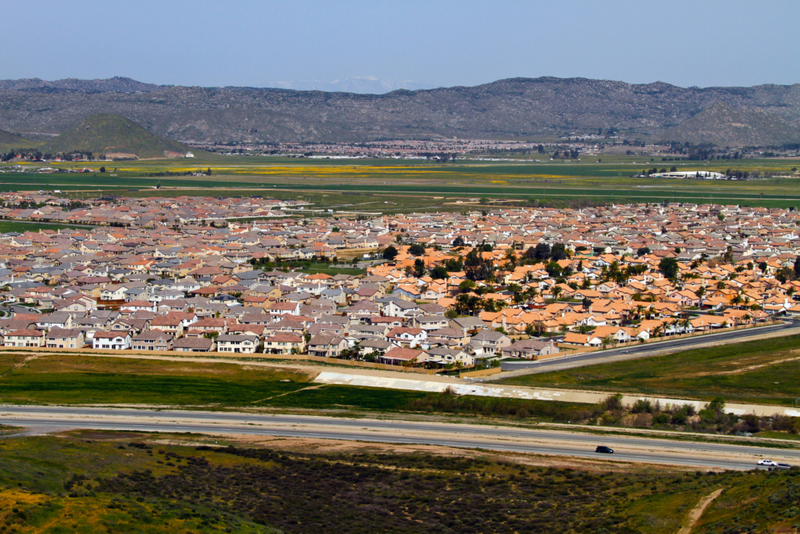
Despite those issues ( and many others that we have not listed), the population of Hemet has increased in the past ten years. People either don’t realize how violent the city is or simply don’t care.
Brownsville, Texas
Brownsville is right on the border of the United States and Mexico, which makes it a hot spot for illegal immigration. Since it’s a public place for crossings, it’s also one of the most patrolled cities in the country. These two reasons, and many more, make Brownsville a star on our list and a place not too many want to move to.
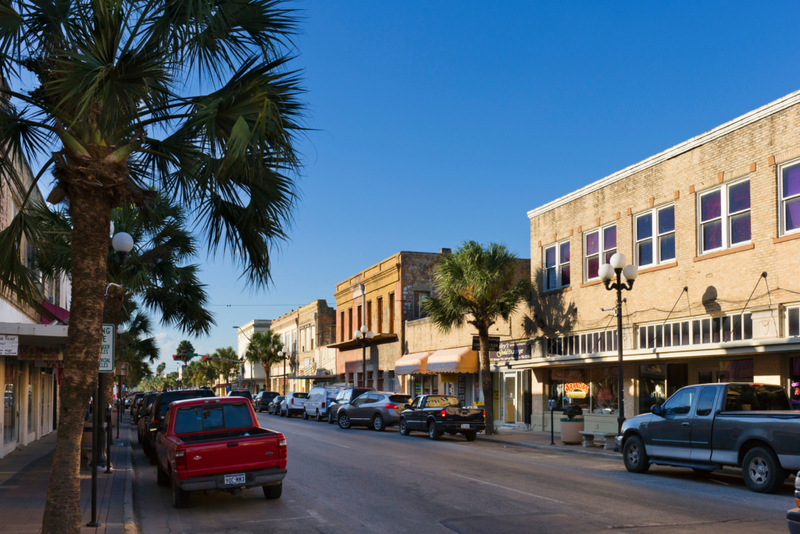
The issues with immigration and constant patrols make it difficult for any residents to sell property in Brownsville. Thirty-one percent of the population currently lives in poverty, and many are unable to move to a new city since they can’t sell their current home.
Lynwood, California
Lynwood was once called “The best place to live.” Unfortunately, you’d never guess that title today. When Interstate 105 was built right through Lynwood, the town took a turn for the worst. Now, wit
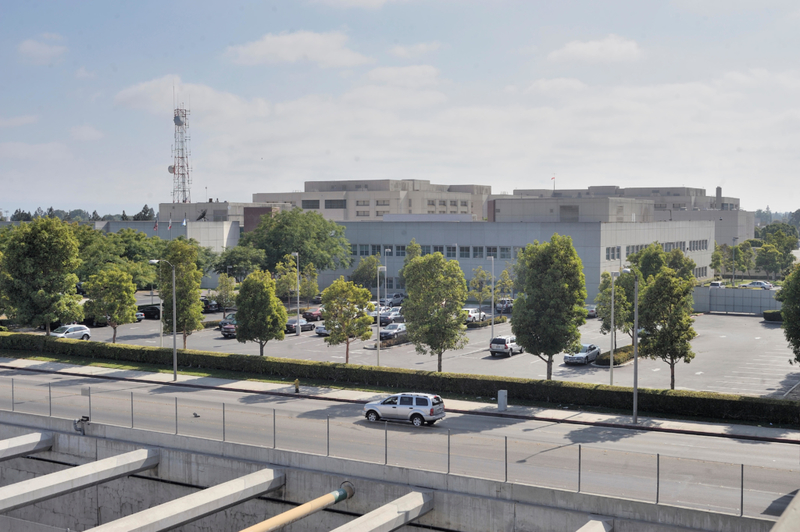
Not liking the change to the landscape, many Lynwood residents left their homes and moved away. Plus, the actual building of the freeway demolished many homes and businesses. After such a drastic change to the infrastructure of the town, Lynwood never really recovered.
West New York, New Jersey
West New York isn’t exactly a convenient place to live. The average commute in this city is 37 minutes, which means most residents spend a large chunk of their days on the road.
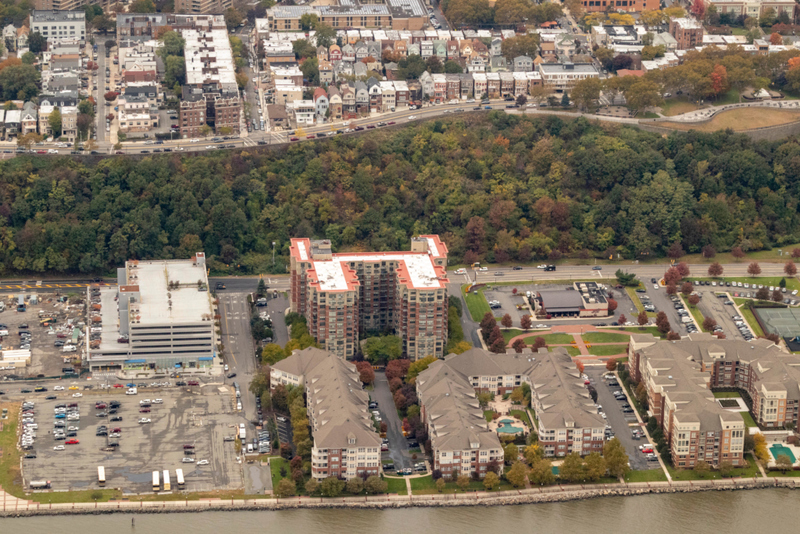
In addition to this, the city is plagued by issues with trash and parking. The streets themselves are dirty and difficult to navigate. On top of that, 22% of the population lives in poverty.
Saginaw, Michigan
The closure of GM factories has had a severe impact on Saginaw. The factories used to employ 25,000 people, but all of them lost their jobs when the factory shut down. Since 2010, the population in Saginaw has decreased by 6%.
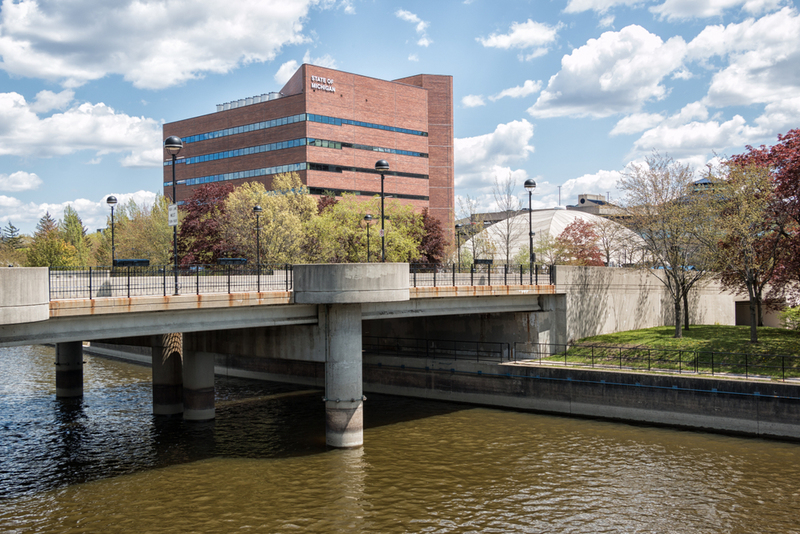
In addition to this, Saginaw is plagued with gun violence. Thirty shootings were reported in 2018, lending even more reason for residents to escape this town.
Jackson, Mississippi
In Jackson, almost 29% of the population lives in poverty. Unfortunately, the city cares very little about the struggle of its residents. Despite the high poverty rate, the city threatened to cut water for 20,000 people who hadn’t paid their bills. The struggling residents hadn’t paid roughly $45 million worth of bills.

Because of the poor living conditions and treatment of citizens, many residents want to get out of Jackson. The city’s population has decreased by 5% since 2010.
Anderson, Indiana
At one point, Anderson was home to 24 active GM factories. Unsurprisingly, these factories employed a large chunk of Anderson’s population. But the factories eventually shut down, and 23,000 people lost their jobs. Since then, the town has been on a steady decline.
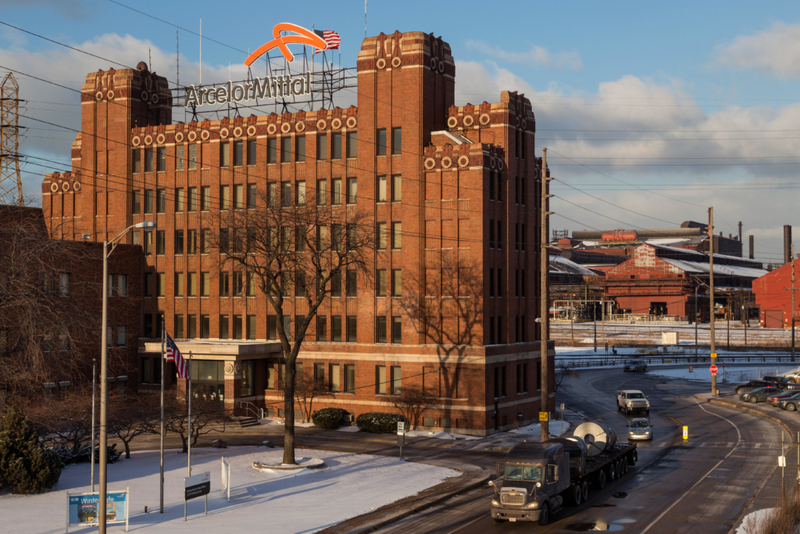
Rather than living in poverty, most people have chosen to abandon Anderson altogether. In 2015, the city used $2.8 million to tear down 100 abandoned homes.
Macon-Bibb County, Georgia
In Macon-Bibb County, only 56% of the population is working. With so many people unemployed, 26% are also living in poverty. In the past eight years, 2% of the population has left the city.
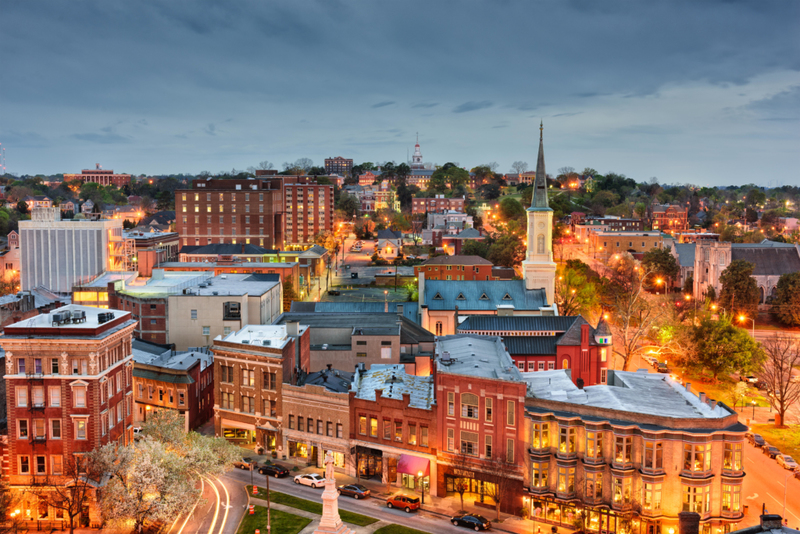
Macon-Bibb County is home to 3,700 unoccupied buildings, which contributes to the overall run-down look of the town. Although it’s visually unappealing, the city doesn’t have a way to fill the abandoned properties.
Lancaster, California
California may conjure up images of sunny beaches and sandy getaways, but that isn’t the reality in Lancaster. Well, that’s not true—you will find plenty of sand in this desert town.

Only 51% of Lancaster’s population is employed, while 23% live in poverty. As a town with nothing to do, the city struggles with addiction and a robust racist community. While politicians are trying to bring the city back to life, there doesn’t seem to be much hope for Lancaster.
San Bernardino, California
San Bernardino earns one claim to fame as the home of the first McDonald’s restaurant. It’s also the home of the Hells Angels motorcycle gang. Unfortunately, 30% of the 216,000 people who live in Lancaster live below the poverty line.

San Bernardino is struggling through a recession that has severely impacted the jobs available to residents. Despite its notable achievements - it’s not the right place to live today.
Cicero, Illinois
Cicero has had significant issues with gangs for decades. In fact, the city’s reputation as a hub of gang violence dates all the way back to the 1920s when it was considered Al Capone’s “private playground.”
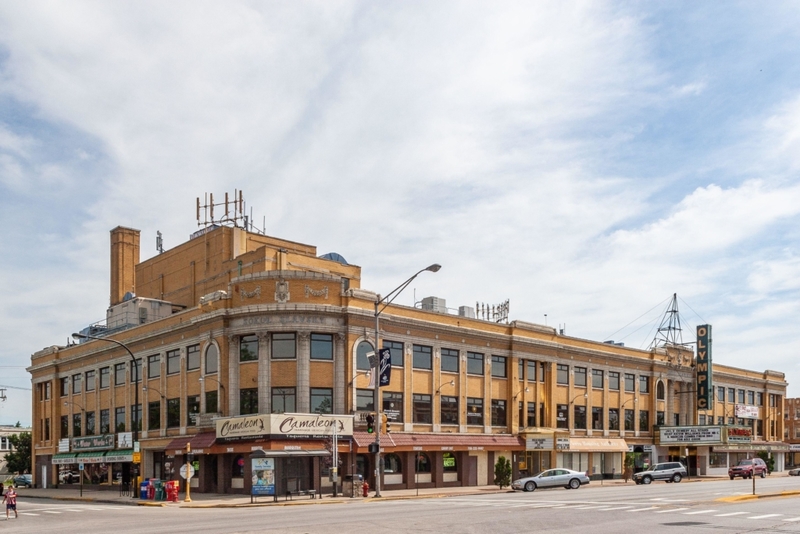
In 1999, the city finally decided to make a real stand against gang violence. They put an order in place that forces gang members to leave within 60 days or face a $500 fine for each day they stay in the city. Unfortunately, the order hasn’t done much to improve the violence in Cicero.